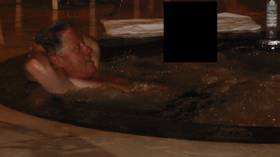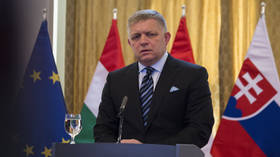Military intervention would destabilize Syria – Brzezinski
Resolving the Syrian conflict by force would be “counterproductive, premature and destabilizing,” says former US National Security Adviser Zbigniew Brzezinski.
As the international community is still unable to reach a consensus on what – if anything – to do about the crisis in Syria, there have been calls from some countries for military intervention.But even if the West intervenes, with America directly involved, there is a risk that that the conflict will turn out to harm the US more than help it, Brzezinski said, notably in terms of the Muslim perception of America. He also reminded his audience about Iraq and Afghanistan, where he said the US “has been for too long.”However, the Carter administration's National Security Adviser did not rule out US military involvement, saying that if neighboring Turkey and Saudi Arabia, along with the Arab community, support “a course of action that they think is needed for resolving the Syrian problem,” Washington will “fully support” it. And if so, the US will “act a little bit a way” as “we acted in Libya” – “support from the back.”“I think [it] would be counterproductive, premature, and probably even regionally, perhaps destabilizing,” he concluded.
Libya methods won't work in Syria
Brzezinski, who supported military invasion in Libya “from the very beginning,” says the scenario that worked with Gaddafi will not work with Assad, because “Syria is not Libya” and “Assad is not Gaddafi.”Under this Brzezinski has in mind the significantly different conditions on the ground – geographical and political, and also the ability to show a resistance as well as “other differences.”And all these differences “underline the greater complexity of the Syrian problem, and the limitations of what can be done from the outside.”“For example there was significant military and political opposition, at a high level, to Gaddafi, which surfaced immediately when the unrest erupted into violence. And that the Gaddafi regime was not a fully institutionalized regime, but highly personalized regime with special arrangements with particular tribes, also contributed to political stability. Once the special arrangements started breaking down the whole thing started breaking down,” explained Brzezinski while talking at a panel at the University of Maryland. As for geography, Libya’s location makes the use of external force more accessible than in case of Syria. “Essentially the sort of center of life in Libya is close to the shores, so naval forces and air forces could be very decisive,” he said. Besides that, Brzezinski said, air strikes against Assad regime “are not going to be very effective.”














